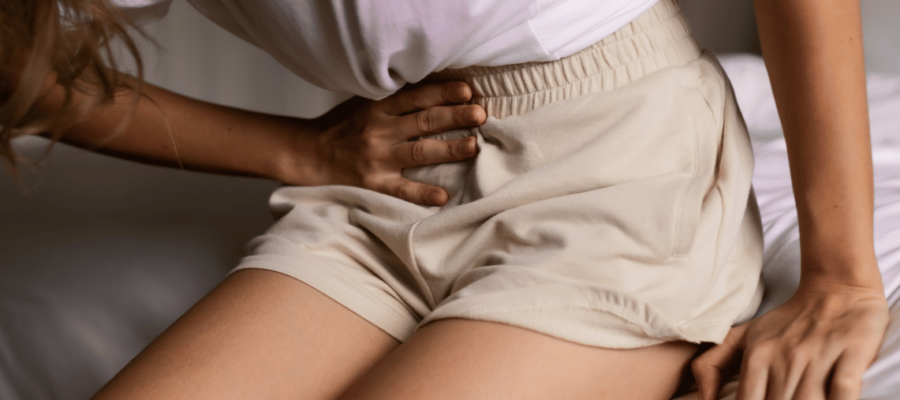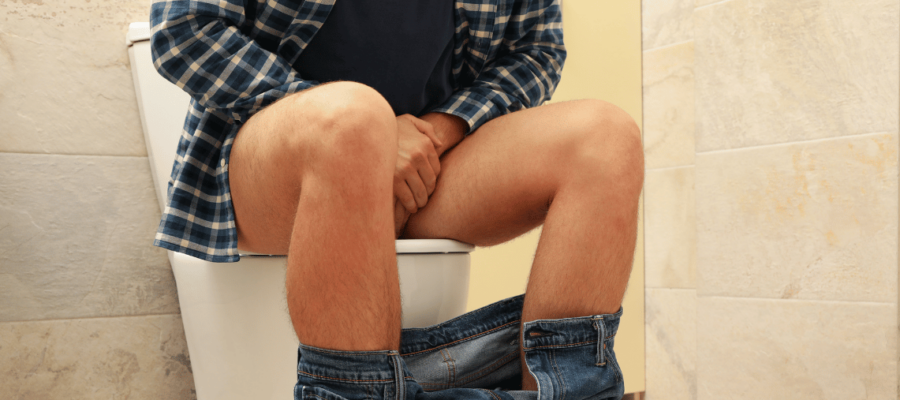Pelvic floor problems can be a source of a lot of stress. Difficulty holding urine, the feeling that something is ‘dropping out’, urine loss with a foul odor as a result, these are justifiable reasons for not feeling well. These problems are often related to a weak pelvic floor. Therapy, medication and other aids can offer a solution. It is always advisable to consult your doctor.
The pelvic floor
The pelvic floor is located at the bottom of the pelvis, in a place where many organs come together. The pelvic floor contains the bladder, the urethra (urethra), the vagina (sheath) as well as the end of the large intestine or rectum. These organs stay in place because they are attached to the pelvic floor with bands. When you cough or start to laugh you will notice that there is an increase in pressure because the tires start to move. The bands also ensure that you can hold your urine if desired. When you relax the muscles in the pelvic floor, it allows you to urinate, defecate or have intercourse. You can imagine that when there is too much or too little tension on the ligaments of the pelvic floor, various problems can arise with holding the stool and urine.
A too weak pelvic floor
If you have a busy day ahead of you with long meetings or physically demanding work, it can be useful to A weakened pelvic floor can cause various complaints. A common complaint is incontinence. When the bladder and urethra do not function properly, urine can escape unintentionally. It can also happen that you often have the urge to urinate without this being really necessary. It can also lead to a bladder infection. Because the bladder cannot close properly, the bacteria that cause bladder infections can more easily settle in the bladder.
Due to not having proper control of the rectum, it is often difficult to have regular bowel movements. This then leads to constipation or constipation. On the other hand, it can be difficult to hold stools and a form of stool incontinence develops. Pain in the lower abdomen, pain in the groin area, abdominal pain radiating to the back and fatigue are all associated with this. Patients also often report complaints related to the community.
The most common complaints as a result of a weak pelvic floor
- Prolapse
- Stress incontinence
- Urge incontinence
- Faecal incontinence
- Problems with intercourse
Prolapse
When you suffer from a prolapse of the pelvic floor, organs such as the bladder, the end of the colon or the uterus can come out. In the event that the bladder prolapses, it is visible as a round sphere at the front of the vagina. In case of a prolapse of the rectum, a round bulb can be seen at the anus. When the uterus has prolapsed, this can also be seen at the vagina. It is quite possible that several organs have prolapsed at the same time.
A prolapse gives a feeling of pressure on the vagina. You may feel that something has to come out, as if some kind of ball is pressing on it. This can cause a constant nagging or pressing pain that radiates to the back or anus. A small prolapse causes the urge to urinate, while a large prolapse makes it difficult to urinate. Such prolapse is often a source of fatigue. Exercise can cause additional pain. For example, you will notice that after cycling or sitting in an unnatural position you have an increase in complaints, while these decrease again when the effort is over.
Stress incontinence
In some people, caffeine irritates the bladder, prompting you to take it sooner. Avoid all caffeinated drinks A form of incontinence that occurs while playing sports or lifting heavy objects. It is therefore incontinence that occurs when there is a lot of tension on the pelvic floor because you tighten your abdominal muscles. It can also happen with simple things like sneezing, laughing, coughing or being startled. You lose urine without feeling the urge to go to the toilet.
Urge incontinence
Urge incontinence is a type of incontinence where you often feel you have to go to the toilet. Sometimes this feeling comes on so suddenly that you are late to the toilet and you already have urine leakage before you even reach the door. This can also happen while sleeping without you noticing.
Subconsciously hearing water running can cause urine leakage. This can be related to a weak pelvic floor but can also be the result of a disorder in the control of the bladder or the nerves of the bladder. This form of incontinence can also coexist with stress incontinence. Because its treatment always focuses on one form, it is important to know what the main culprit is.
Faecal incontinence
Those who suffer from faecal incontinence will pass stools without really feeling the urge to do so. As a result, people are often late to the toilet and wind or flatulence is also one of the consequences. This form of incontinence is often the result of damage to the sphincter muscle. It can also arise as a result of a weak pelvic floor or a complication of childbirth.
Treatment of a weak pelvic floor
You can train muscles, including the muscles of your pelvic floor. Much can be achieved with the help of physiotherapy. Physiotherapy is a therapy that helps you gain better control over your pelvis and is also used in women who have too tight a contraction of the muscles.
Women who suffer from a weak pelvic floor and suffer from urine loss. It is best to use the Dailee Premium Lady Pads or Dailee Performer Lady Pads in addition to a treatment.
















